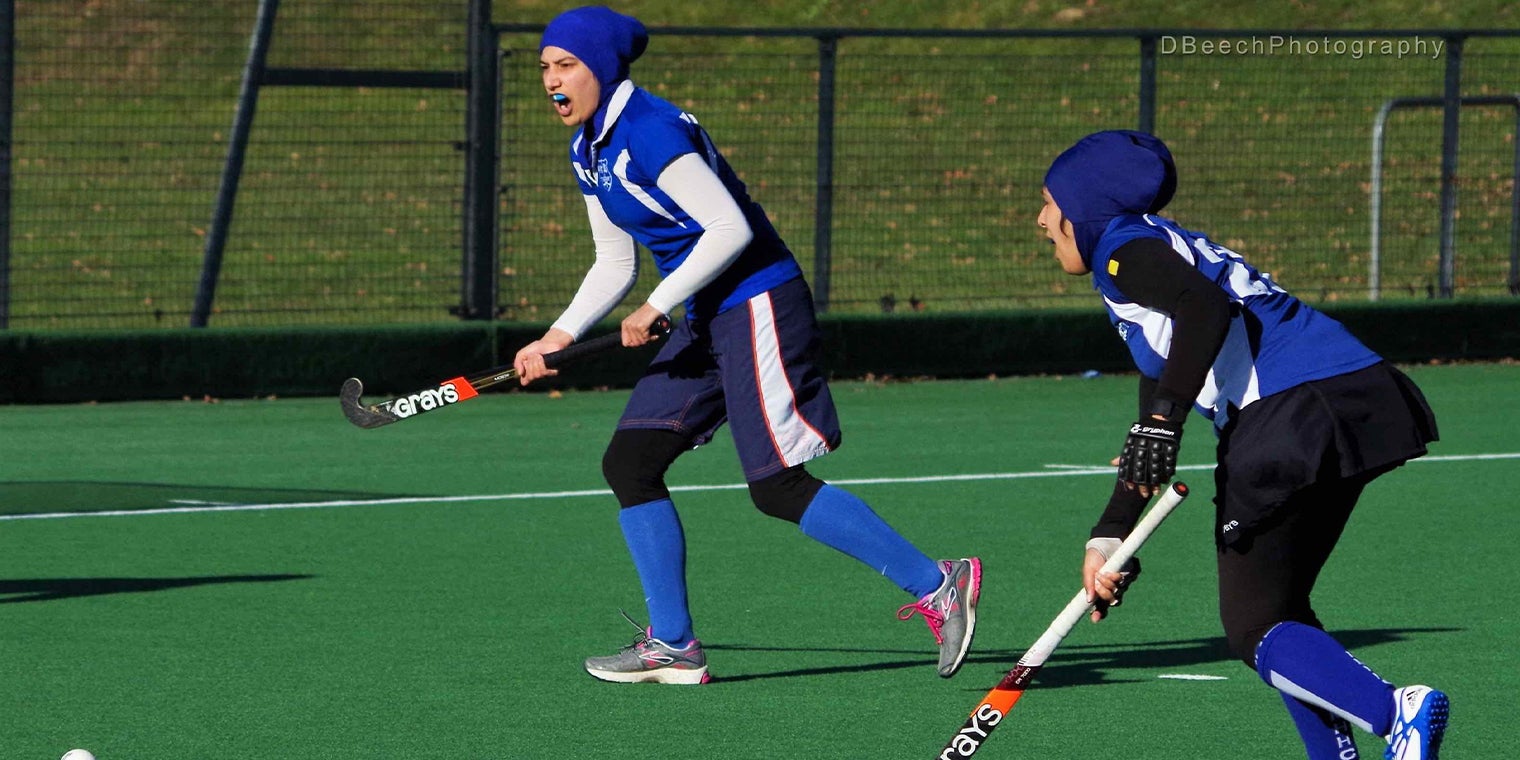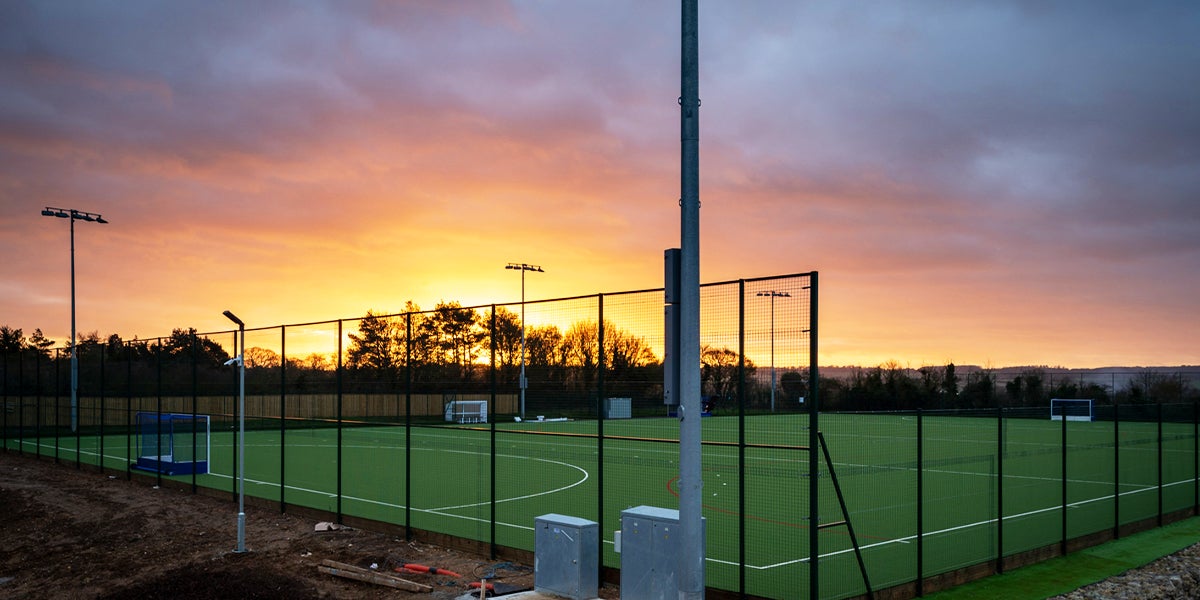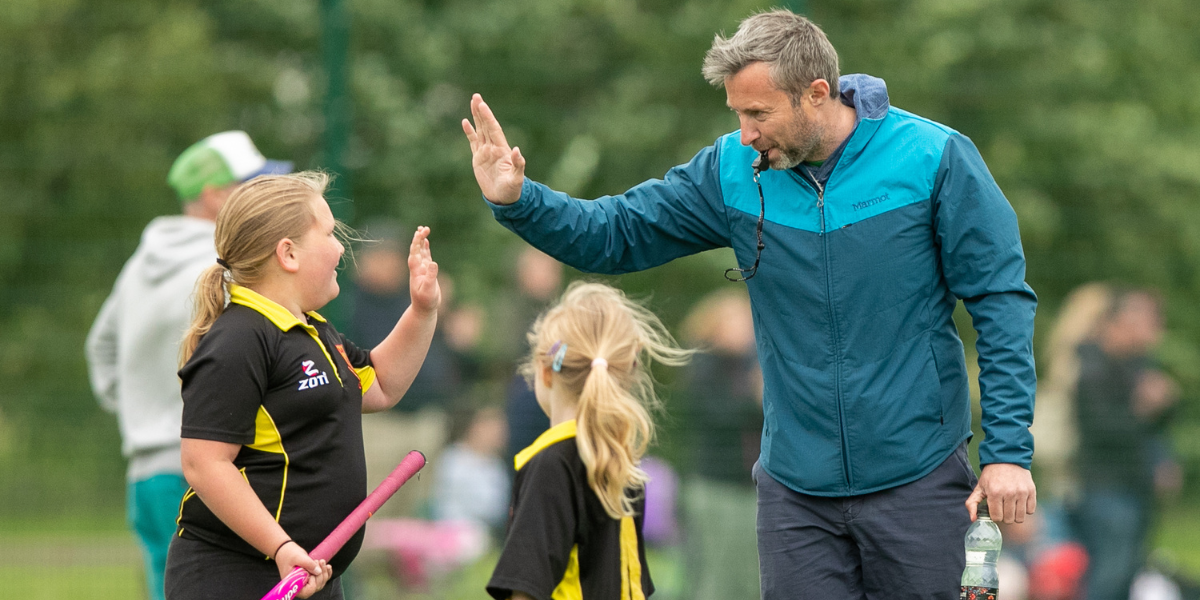Ramaḍān is the 9th month of the Islamic calendar and is considered one of the most spiritual times of the year for Muslims. It signifies the time during which the Qur’an was initially revealed and is the holy month of fasting, alms giving and prayer. It is important for hockey clubs and leagues to raise awareness to ensure they understand the needs of Muslim players, coaches and officials during this important sacred month, Ramaḍān.
The Islamic calendar follows the phases of the moon, commonly known as the lunar cycle. As a result, the month of Ramaḍān falls approximately 10 days earlier each year when compared to the Gregorian calendar. By following the lunar calendar and verified sightings of the new moon the exact start and end dates can vary between communities. The Ramaḍān start date for 2025 is expected to begin on Friday 28 February, it is determined following the sighting of the moon over Makkah however this will vary from country to country. Lasting for 30 days, Ramaḍān will approximately end around Sunday 30 March, with the celebratory days of Eid al-Fitr starting on Monday 31st March or Tuesday 1 April accordingly.
The Census 2021 results showed that there are 3.9 million Muslims in England and Wales, which represents 6.5% of the total population.
Ramaḍān provides an opportunity for many Muslims for deep spiritual focus and reflection as well as gatherings with friends, family and community. Charitable giving and gifting are also key features of the month.
Be aware of individual differences
Many Muslims find that Ramaḍān is a time where their usual spiritual practice increases, whilst other Muslims find Ramaḍān is a time to connect more with their faith than they do at other times of the year. Be aware of everyone’s differences. Some Muslims who may not be particularly observant during the rest of the year may observe the rituals of Ramaḍān.
Equally do not assume that someone will be fasting during Ramaḍān. Some Muslims will have an exemption from fasting and these include, but are not limited to, children, people with long term health conditions or illness, older people, and women who are menstruating, pregnant or breast feeding.
Find out more:
-
Most Muslims observing Ramaḍān will fast and abide by the obligations that between dawn and sunset, they must not eat or drink (including water), smoke or have sexual relationships. Ramaḍān is about developing and improving self-control.
It is usual to wake early before dawn to have a meal – Suhoor – before starting to fast at the break of dawn. The fast is broken at sunset – Iftar – and traditionally this is done by eating dates and drinking water before having a meal. Fasting during Ramaḍān is considered to be a means of attaining piety, self-control, God consciousness and appreciation for the vast bounties of life. It is an investment for the afterlife, providing significant rewards when done with pure intentions.
-
Considered to be the Islamic calendar’s most sanctified eve. Muslims are encouraged to increase their reflection and prayer in particular for this night. This night falls within Ramaḍān’s final 10 days, which are the holiest of the entire month.
-
Eid al-Fitr, meaning ‘Festival of Breaking the Fast’, is the important holiday that follows the month of Ramaḍān. Celebrated for up to three days, Eid al-Fitr does not begin until the sighting of the moon, although it is expected to start on Saturday 22 April or Sunday 23 April 2023. It is a time for giving charity to the poor, congregational prayer, great feasts, the giving of gifts to children and spending time with those dearest to you.
-
Below is a selection of common greetings you can use to share your well wishes with your Muslim hockey colleagues during Ramaḍān and Eid-ul-Fitr:
- ‘Ramaḍān Mubarak’ – meaning ‘Blessed Ramaḍān ’
- ‘Ramaḍān Kareem’ – meaning ‘Noble Ramaḍān ’ or ‘Have a generous Ramaḍān’
- ‘Kul 'am wa enta bi-khair’ – meaning ‘May every year find you in good health’ or ‘I wish you well on this occasion every year’
- ‘Eid Mubarak’ – meaning ‘Blessed Eid’
Tips for fixtures organisers at clubs and leagues during Ramaḍān
- Please take the time to ask your Muslim members if there is anything that they would appreciate your club doing to accommodate them during this time.
- If you are playing at sunset, agree the time that sunset will occur and wherever possible, enable a short break in playing for players and officials to be able to take a drink of water and consume dates or other energy giving food before resuming.
- Ramaḍān is a sacred and reflective time and those observing the month may not be inclined to attend social activities or events which are scheduled for the evening.
- 10 days at the end of the month of Ramaḍān are the most spiritual and so players, coaches and umpires are more likely to be unavailable for other activities.
- The breaking of the fast each evening - Iftar - may well land during training times so be open to adjusting training to help players and coaches.
- Do not make assumptions how people will feel during fasting, it will be a very individual experience so make sure everyone feels able to talk openly and to be respected. Some people are energised by observing the month, some people will feel differently. Whilst children are exempt from fasting, be mindful of their parents who may be fasting themselves, attending increased, or longer prayer sessions, or preparing to host an Iftar.
- Please be considerate of eating and drinking near fasting Muslims, be mindful of when and where you arrange drinks and teas.
- Consider the food you offer for teas during Ramaḍān. If your team or the opposition includes Muslim players, speak to them about options if the teas will occur after sunset. They may wish to head elsewhere for Iftar but provide them with a choice.
- Consider hosting an Iftar for your players or for another nearby team. It will provide a great opportunity to make people feel really welcomed and included in hockey.
-
5.1 Fixture Scheduling
5.1.1 The ALMC will issue fixtures with their scheduled dates
5.1.2 Both Clubs may agree to move a fixture to within 5 days (Sunday to Thursday) after or any time before the scheduled date. This is subject to the approval of ALMC. Clubs are to note the guidance issued by England Hockey on Faith and Fixtures when considering requests for rescheduling a fixture.
5.1.3 Matches taking place from Thursday to Wednesday are considered as a single weekend round of matches.
6.3 Start times and floodlights
6.3.1 Match start times shall be between the following times:
Grade Earliest Start Latest Start Latest Start Under Lights
1 11:30 15:00 16:30
2 11:30 15:00 16:30
3 10:00 15:00 17:30
4 10:00 15:00 17:30
5 10:00 15:00 17:30
6.3.2 Matches may be played earlier or later than the times shown if both teams, the ALDS and any Area Appointing Umpire to the match, agree
-
5. Fixture Management and Matchday Administration
5.1 Dates
5.1.1 EHCD will issue fixtures with their scheduled dates. (Provisional dates published in Priority & Centralised Calendar).
5.1.2 All matches in AMWTC must be played on the scheduled date unless both teams agree a revised date at least 7 days before the match is due to be played and the approval of the EHCD has been obtained or EHCD require a date to be changed to avoid a clash with higher priority activity.
5.1.3 If any match is rescheduled the priority for players will be the originally scheduled activity on that date.
5.2.2 Match start times shall be between the following times:
Time – Sep & Oct, Mar & Apr Time – Nov-Feb Under floodlights
1130 – 1500 hrs 1130 – 1430 hrs 1630 hrs at the latest
5.2.3 Matches may be played earlier or later than the times shown if both teams, any Umpire Panel appointing to the match and EHCD agree.
Thank you to The Muslim Sports Foundation who provided support with this guidance





